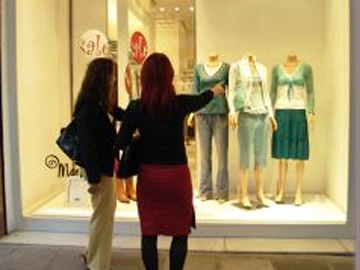Since 2008, the number of consumers who feel that such initiatives don’t offer any real value jumped by 50%, according to a study by Forrester Research. The same study also found that almost one-third of consumers say that loyalty programs don’t influence their purchase — that’s up from 22% in 2008.
Why the dissatisfaction? Let’s call it the Groupon factor. Since 2008, there have been a flood of daily deal merchants, like Groupon and LivingSocial, that have filled customers inboxes with irrelevant offers. (Groupon itself has recently employed a Pandora-like “thumbs up, thumbs down” rating system to tackle this problem, which is best illustrated by the example of middle-aged men getting offers for bikini waxes.)
Proponents of loyalty programs, however, believe help is on the way thanks to two factors — better targeting and mobile payments.
Swipely Beefs Up Its Credit Card-Based Loyalty Programs
Once a service for simply sharing purchases, Swipely is contining its evolution into a credit-card based loyalty program for small businesses with a set of new merchant tools it announced Tuesday.
The tools allow Swipely’s 350 merchants in Boston, San Francisco and New York to target their customers with deals based on recent purchase interactions with their small businesses. Merchants can, for instance, send a “we miss you” offer to customers who haven’t made purchases within a certain time period or a “thank you note” offer to those who have visited recently.
The tools allow Swipely’s 350 merchants in Boston, San Francisco and New York to target their customers with deals based on recent purchase interactions with their small businesses. Merchants can, for instance, send a “we miss you” offer to customers who haven’t made purchases within a certain time period or a “thank you note” offer to those who have visited recently.
How to Maintain Traditional Customer Service in the Social Media Age
You’ve been monitoring your Facebook wall and Twitter pages, responding to customer inquiries. But what are the next steps you should take to stay abreast of the latest trends in social service?
The emergence of social media communities requires you to track a new set of customer service metrics. Fortunately, you’ll have a better understanding of who your customers are and their service expectations. In some cases, it might even mean the end of traditional service level agreements (SLAs).
The emergence of social media communities requires you to track a new set of customer service metrics. Fortunately, you’ll have a better understanding of who your customers are and their service expectations. In some cases, it might even mean the end of traditional service level agreements (SLAs).
What Loyalty? High-End Customers are First to Flee
Businesses that offer their customers the highest levels of service might like to believe that all their efforts to pamper and please will pay off with an extremely loyal following.
But as new research from Harvard Business School demonstrates, the customers you think are your best and most loyal are likely to be the first to cast you aside when a challenger to your service superiority barges into the market.
Read On
But as new research from Harvard Business School demonstrates, the customers you think are your best and most loyal are likely to be the first to cast you aside when a challenger to your service superiority barges into the market.
Read On
Subscribe to:
Posts (Atom)





